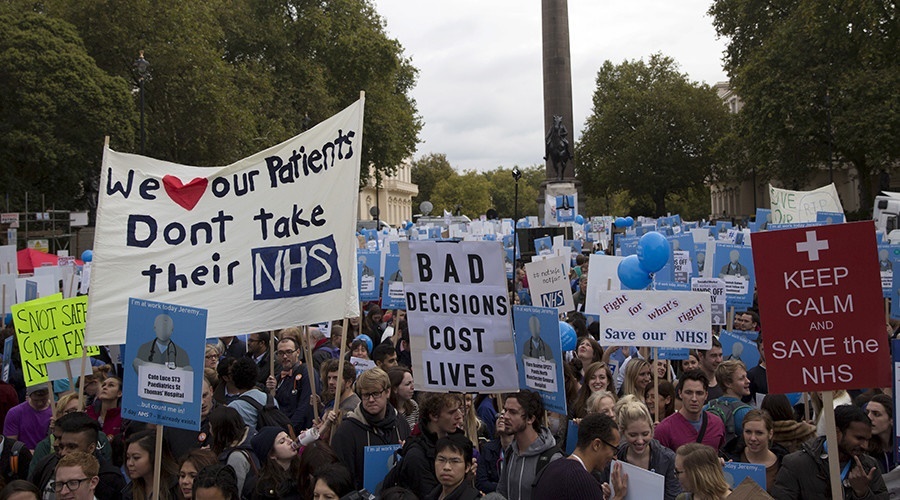19.11.15
More than 98% of junior doctors vote to strike
A staggering 98% of junior doctors balloted by the BMA have voted in favour of full strike action for three days in December against the government’s contract reforms.
Following a ballot of more than 37,000 doctors in England, of whom more than 28,000 responded, the association also found ‘industrial action short of a strike’ got almost universal backing, at more than 99%.
But the BMA said that even now, with such a resounding opposition to the new contract, its members are willing to avert the need to strike.
They have therefore approached Acas to offer conciliatory talks with health secretary Jeremy Hunt and NHS Employers to clarify the “conflicting information coming from government” over the past weeks.
If strikes go ahead, junior doctors working in emergency care only will walk out for 24 hours at 8am on 1 December. The whole trainee doctor workforce will then stage full walk-outs on 8 and 16 December.
Dr Mark Porter, BMA council chair, said: “We regret the inevitable disruption that this will cause, but it is the government’s adamant insistence on imposing a contract that is unsafe for patients in the future, and unfair for doctors now and in the future, that has brought us to this point.
“The health secretary is right when he says this action is ‘wholly avoidable’. Our message to him is that junior doctors have today made their views perfectly clear, but that it is still possible to get back around the negotiating table to deliver a contract that is safe for patients, contains the necessary contractual safeguards to prevent junior doctors being overworked and properly recognises evening and weekend work.”
Danny Mortimer, CEO at NHS Employers, said the announcement is “disappointing” and will result in thousands of NHS patients, their families and carers being concerned that their planned care and treatment will be disrupted during December.
“By taking the unprecedented step of not providing emergency cover for two of their days of action, the BMA are putting the NHS and their colleagues under even greater strain during one of its busiest periods impacting even further on our ability to provide safe and effective care for our patients,” he said.
Mortimer added that “even at this late stage” NHS Employers is calling for the BMA to return to talks.

Chris Hopson, chief executive of NHS Providers, said the planned industrial action is “regrettable” and that a negotiated solution to reach an agreement that is “safe for patients and fair for doctors” remains the right way forward.
“It is critical that after nearly three years of discussions about reform of the junior doctor contact, we see genuine progress,” he said. “The immediate priority for provider boards following today’s decision will be to ensure patient safety, particularly if there are to be strike days when junior doctors withdraw emergency cover. This requires the BMA, in the advice they give, and junior doctors, in the actions they take, to think carefully about their next steps.”
Hunt also said the decision was regrettable, claiming it presents a threat to patient safety and the timetables of operations.
He added: “We hope junior doctors will consider the impact this action – especially the withdrawal of emergency care – will have on patients and reconsider.”
But Dr Ron Singer, chair of Doctors in Unite (MPU), stated that the overwhelming vote of junior doctors to take strike action is a “failure of the government’s treatment of another part of the NHS workforce which it fails to value”.
“Doctors in Unite have pledged to support their junior colleagues, backed up by the national health committee of Unite, which represents 100,000 members in the health service,” he said, adding: “The last time junior doctors were driven to take drastic action was 1975, so doctors do not take such decisions lightly nor without due cause.”
For more information on the junior doctor row and to keep up to date with stories, access NHE's exclusive timeline of events dating back to 2013.
(Image c. Steve Eason)